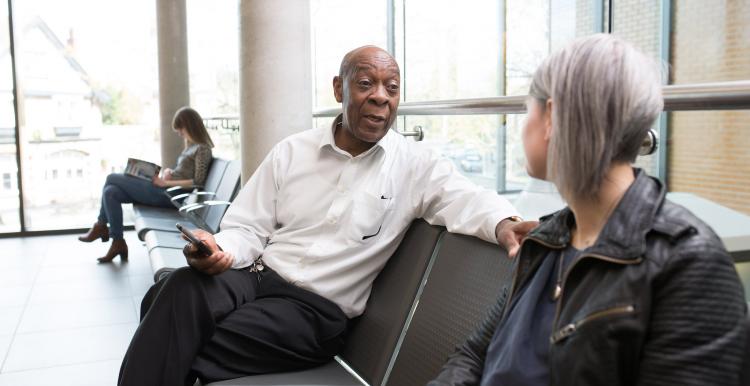Digital health: how translation services can be improved

The NHS is following a digital first strategy. From GP appointments to physiotherapy, many services are being moved online. Accessing services online is called ‘digital health’.
To find out how well this digital first strategy is working, we’ve been speaking to a range of organisations from across communities in Kensington & Chelsea and Westminster. We want to better understand what local patients, residents, and carers think about digital healthcare services like eConsult and System Online, and how they access healthcare generally. By understanding what is working well and what isn’t, we can evaluate how accessible new digital health measures are when used in everyday life.
Since January, we’ve held focus groups and interviews with people from a wide range of groups from across our communities in Kensington & Chelsea and Westminster, including the Macular Society and Age UK. In these focus groups and interviews, service users have told us how they are finding using digital health tools.
Translation services
One issue that many people have told us about concerns translation services. Some people who have English as an additional language have told us that online translation services on GP practice or pharmacy websites do not work well.
In many cases, GP practice websites are not translated into a wide range of languages. One person told us that their local GP website does not translate into their first language. Instead, they have had to use Google Translate, which is often unreliable, to access online resources.
“I use Google, but I would like support from a professional.” Focus group participant
Issues with translation services stretch further than online resources. Many people told us that translation services in GP practices are inadequate too. In some GP practices, there is no information available to patients explaining how to access translation services. Even where this information is available, people told us that they are still unable to have a translator present at their appointments.
Many people told us that before an appointment they use Google Translate to translate their symptoms into English, write the translation out on paper, and show this translation to their GP.
“I would like support with translating. Our GP has no Russian translator. It is difficult to use Google Translate. Special courses to help would be good.” Focus group participant."
This lack of translation services both online and in person stops patients accessing health and social care services on their own. Many people have told us that they are reliant on family members who are fluent in English for help.
Every patient should be able to access a service, or see a doctor confidentially, without needing a friend or family member present to help translate.
“I get help with information from my daughter, who speaks perfect English” Focus group participant."
How can translation services be improved?
There are some straightforward changes that local NHS services can make that will significantly improve the accessibility of healthcare provision for people who have English as an additional language.
As a priority, NHS services must ensure that information about translation services is accessible in physical spaces like GP practice waiting rooms, pharmacies, and hospitals. They must ensure that signage is clear, and that all staff understand what services are on offer, and how patients can access them.
Online, local NHS services must make sure that website translation tools work well. They must ensure that online resources are accessible and translated into as many different languages as possible. There are many online translation software packages available which work well.
As the NHS moves ahead with its digital first strategy, making sure that online tools are accessible to all patients must be the priority.
Talk to us
Do you have an experience of using local health and social care services that you’d like to share?


